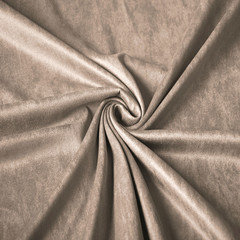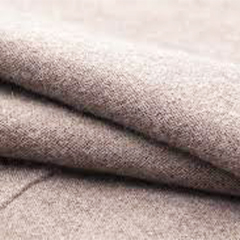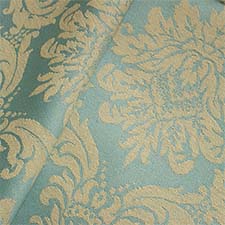What is Nomex? The Fireproof Aramid Fiber
Firefighters and race car drivers swear by it, astronauts and soldiers rely on it—so what’s the secret behind Nomex fabric? Is it woven from dragon scales, or just really good at playing with fire? Let’s uncover the science behind this flame-defying superstar!
▶ The Basic Introduction Of Nomex Fabric
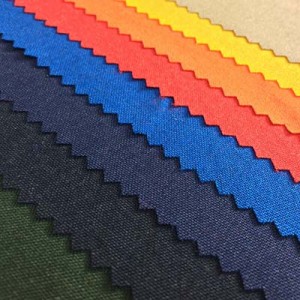
Nomex Fabric
Nomex Fabric is a high-performance flame-resistant aramid fiber developed by DuPont (now Chemours) in the United States.
It offers exceptional heat resistance, fireproofing, and chemical stability—charring instead of burning when exposed to flames—and can withstand temperatures up to 370°C while remaining lightweight and breathable.
Nomex Fabric is widely used in firefighting suits, military gear, industrial protective clothing, and racing suits, earning its reputation as the gold standard in safety due to its reliable life-saving performance in extreme environments.
▶ Material Properties Analysis of Nomex Fabric
Thermal Resistance Properties
• Exhibits inherent flame retardancy through carbonization mechanism at 400°C+
• LOI (Limiting Oxygen Index) exceeding 28%, demonstrating self-extinguishing characteristics
• Thermal shrinkage <1% at 190°C after 30 minutes exposure
Mechanical Performance
• Tensile strength: 4.9-5.3 g/denier
• Elongation at break: 22-32%
• Maintains 80% strength retention after 500h at 200°C
Chemical Stability
• Resistant to most organic solvents (benzene, acetone)
• pH stability range: 3-11
• Hydrolysis resistance superior to other aramids
Durability Characteristics
• UV degradation resistance: <5% strength loss after 1000h exposure
• Abrasion resistance comparable to industrial-grade nylon
• Withstands >100 industrial wash cycles without performance degradation
▶ Applications of Nomex Fabric
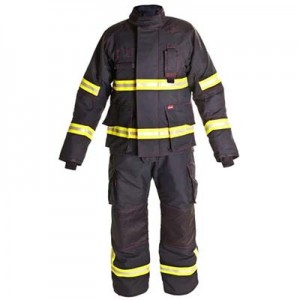
Firefighting & Emergency Response
Structural firefighting turnout gear (moisture barriers & thermal liners)
Proximity suits for aircraft rescue firefighters (withstands 1000°C+ brief exposure)
Wildland firefighting apparel with enhanced breathability
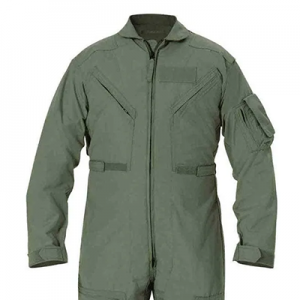
Military & Defense
Pilot flight suits (including US Navy's CWU-27/P standard)
Tank crew uniforms with flash fire protection
CBRN (Chemical, Biological, Radiological, Nuclear) protective clothing
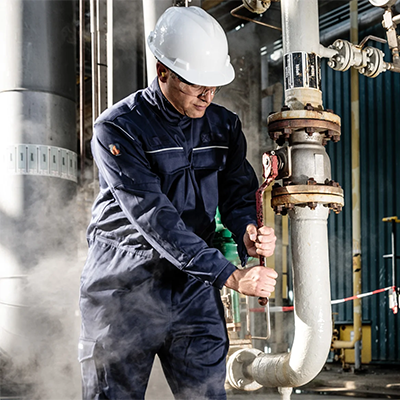
Industrial Protection
Electrical arc flash protection (NFPA 70E compliance)
Petrochemical workers' coveralls (anti-static versions available)
Welding protection apparel with spatter resistance
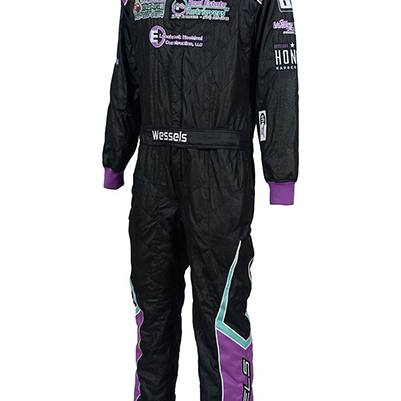
Transportation Safety
F1/NASCAR racing suits (FIA 8856-2000 standard)
Aircraft cabin crew uniforms (meeting FAR 25.853)
High-speed train interior materials (fire blocking layers)
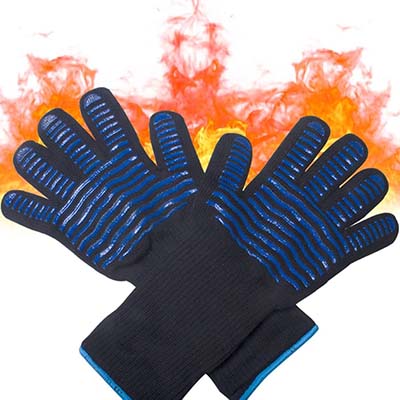
Specialty Uses
Premium kitchen oven gloves (commercial grade)
Industrial filtration media (hot gas filtration)
High-performance sailcloth for racing yachts
▶ Comparison with Other Fibers
| Property | Nomex® | Kevlar® | PBI® | FR Cotton | Fiberglass |
|---|---|---|---|---|---|
| Flame Resistance | Inherent (LOI 28–30) | Good | Excellent | Treated | Non-flammable |
| Max Temperature | 370°C (continuous) | 427°C (limit) | 500°C+ | 200°C | 1000°C+ |
| Strength | 5.3 g/denier | 22 g/denier | — | 1.5 g/denier | — |
| Comfort | Excellent (MVTR 2000+) | Moderate | Poor | Good | Poor |
| Chemical Resistance | Excellent | Good | Outstanding | Poor | Good |
▶ Recommended Laser Machine for Nomex
We Tailor Customized Laser Solutions for Production
Your Requirements = Our Specifications
▶ Laser Cutting Nomex Fabric Steps
Step One
Setup
Use a CO₂ laser cutter
Secure fabric flat on the cutting bed
Step Two
Cutting
Start with suitable power/speed settings
Adjust based on material thickness
Use air assist to reduce burning
Step Three
Finish
Check edges for clean cuts
Remove any loose fibers
Related vedio:
Guide to the Best Laser Power for Cutting Fabrics
In this video, we can see that different laser cutting fabrics require different laser cutting powers and learn how to choose laser power for your material to achieve clean cuts and avoid scorch marks.
0 error edge: no more thread derailment and rough edges, complex patterns can be formed with one click.Double efficiency: 10 times faster than manual work, a great tool for mass production.
How to Cut Sublimation Fabrics? Camera Laser Cutter for Sportswear
It is designed for cutting printed fabrics, sportswear, uniforms, jerseys, teardrop flags, and other sublimated textiles.
Such as polyester, spandex, lycra, and nylon, these fabrics, on the one hand, come with premium sublimation performance, on the other hand, they have great laser-cutting compatibility.
Learn More Information about Laser Cutters & Options
▶ Nomex Fabric's FAQs
Nomex fabric is a meta-aramid synthetic fiber developed by DuPont (now Chemours). It is made from poly-meta-phenylene isophthalamide, a type of heat-resistant and flame-resistant polymer.
No, Nomex and Kevlar are not the same, though they are both aramid fibers developed by DuPont and share some similar properties.
Yes, Nomex is highly heat-resistant, making it a top choice for applications where protection against high temperatures and flames is critical.
Nomex is widely used because of its exceptional heat resistance, flame protection, and durability while remaining lightweight and comfortable.
1. Unmatched Flame & Heat Resistance
Does not melt, drip, or ignite easily—instead, it carbonizes when exposed to flames, forming a protective barrier.
Withstands temperatures up to 370°C (700°F), making it ideal for fire-prone environments.
2. Self-Extinguishing & Meets Safety Standards
Complies with NFPA 1971 (firefighting gear), EN ISO 11612 (industrial heat protection), and FAR 25.853 (aviation flammability).
Used in applications where flash fires, electric arcs, or molten metal splashes are risks.
3. Lightweight & Comfortable for Prolonged Wear
Unlike bulky asbestos or fiberglass, Nomex is breathable and flexible, allowing mobility in high-risk jobs.
Often blended with Kevlar for added strength or stain-resistant finishes for practicality.
4. Durability & Chemical Resistance
Holds up against oils, solvents, and industrial chemicals better than many fabrics.
Resists abrasion and repeated washing without losing protective properties.





